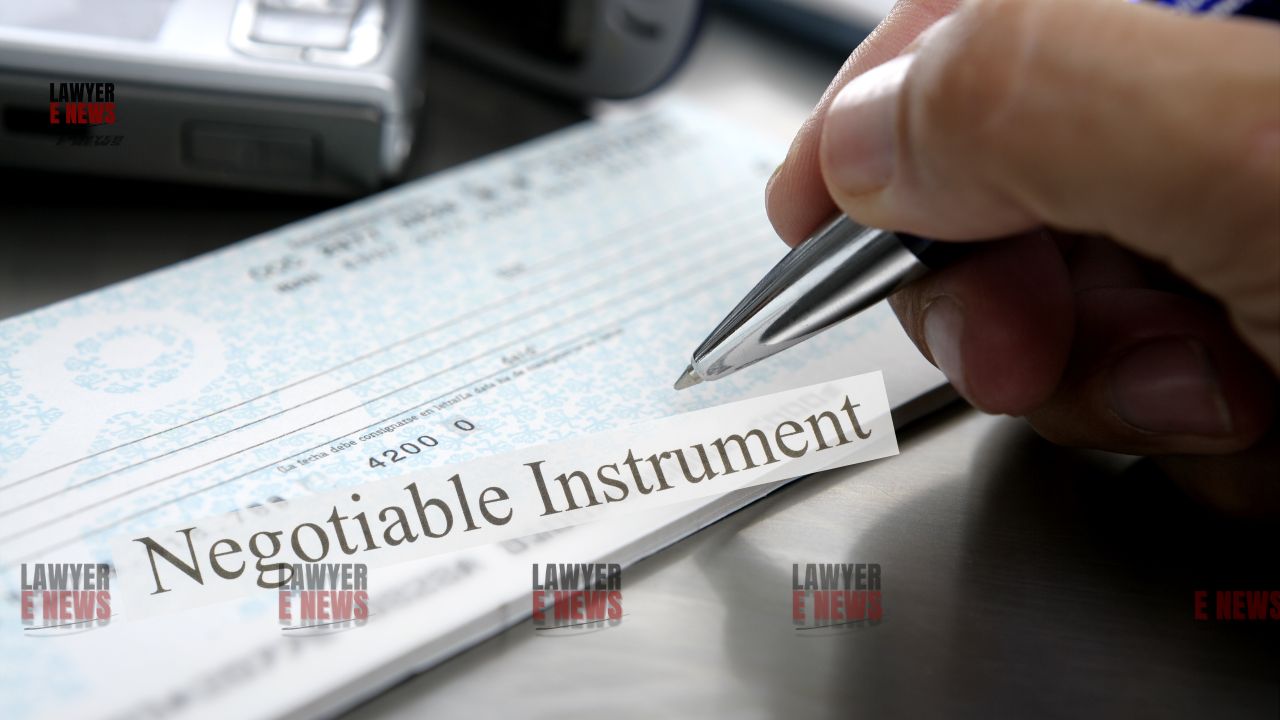-
by Admin
15 February 2026 2:36 AM



Court affirms that once the principal amount is paid and accepted, additional claims for interest do not sustain a cheque dishonor complaint. The Punjab and Haryana High Court, in a significant ruling, has quashed a complaint filed under Section 138 of the Negotiable Instruments Act, 1881 (NIA), for cheque dishonor. Justice Anoop Chitkara emphasized that once the principal amount of the cheque has been paid and accepted, any subsequent claims for interest cannot sustain the continuation of a Section 138 NIA action. This judgment clarifies the legal position regarding the enforceability of interest claims under the NIA.
The petitioner, Anju, sought the quashing of a complaint filed by the respondent, Ram Gupta, under Section 138 NIA for the dishonor of four cheques amounting to Rs. 4,80,000. These cheques were issued for the purchase of plastic granules from the respondent’s company. The petitioner argued that she had already discharged the entire liability of Rs. 5,05,621 by making payments totaling Rs. 5,62,088 in regular installments before the complaint was filed. Despite this, the respondent claimed additional interest at 24% per annum, leading to the legal dispute.
The court noted that the petitioner had made payments exceeding the cheque amount, which the respondent had accepted. “The moment the complainant receives the amount equal to the cheque amount, accepts it, and admits receipt of the entire cheque amount, Section 82 of the NIA applies, discharging the liability,” observed Justice Chitkara. The court underscored that the petitioner’s payment of Rs. 5,62,088 against the total liability of Rs. 5,05,621 effectively settled the debt.
Addressing the respondent’s claim for interest, the court stated, “The dishonor of a cheque becomes a punitive offense subject to the subsistence of a legally enforceable debt or other liability. In the absence of a specific demand for interest in the complaint, interest cannot form the basis for a Section 138 NIA action.” The court further elaborated that the presumption under Sections 118 and 139 NIA applies only to the principal amount and not to unspecified interest claims.
The judgment extensively discussed the principles of evaluating the enforceability of interest claims under the NIA. It reiterated that once the principal amount is paid and accepted, any additional claims for interest must be explicitly stated and agreed upon. “In the present case, the complainant admitted the receipt of the cheque amount, even more than that, but did not withdraw the complaint or pursue compounding under Section 147 of NIA,” the court noted.
Justice Chitkara remarked, “Given the statutory mandate of Section 82 of NIA, the moment the holder of the cheque accepts and admits the receipt of the entire cheque amount, the liability stands discharged.”
The Punjab and Haryana High Court’s dismissal of the complaint underscores the importance of clear legal standards in cheque dishonor cases. By affirming that the discharge of the principal amount nullifies further claims under Section 138 NIA, the judgment provides critical guidance for similar disputes. This ruling is expected to influence future cases, reinforcing the legal framework for addressing cheque dishonor issues.
Date of Decision: May 17, 2024
Anju vs. Ram Gupta
